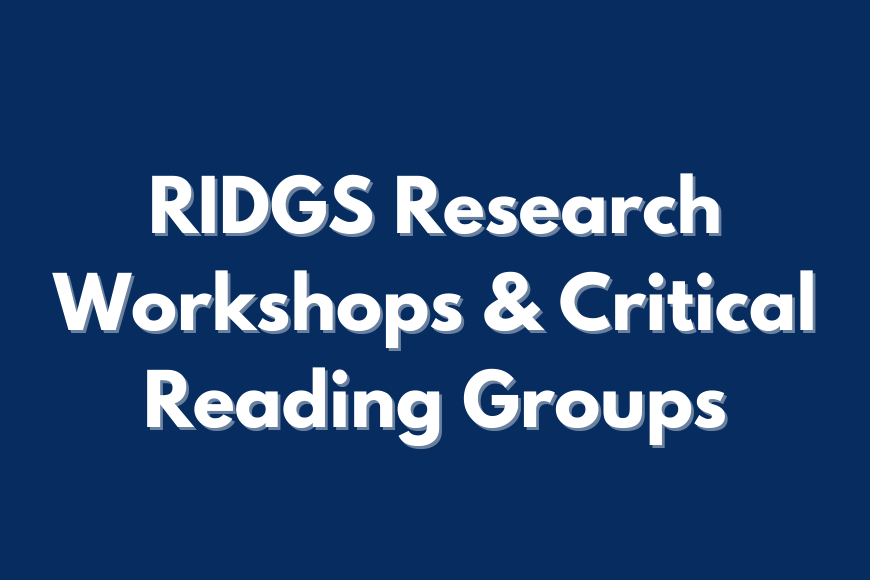RIDGS Research Workshops & Critical Reading Groups

RIDGS Research Workshops & Critical Reading Groups
Applications open for AY 2023-24
Applications will be accepted on a rolling basis.
The Center for RIDGS Studies is accepting applications for new and renewed Research Workshops (requirements indicated by 1) and Critical Reading Groups (requirements indicated by 2).
Each year, RIDGS will sponsor student or faculty-led groups of graduate and undergraduate students (ranging in size from 4-10 participants) to:
- Pursue a concrete research question or
- Read and discuss a syllabus of texts of their choosing.
At the end of the year, students will write a short:
- Progress report outlining what research steps they have taken and what they have learned or
- A “state of the field” essay, describing how their texts have shaped the field as well as how they have and still could be used to inform political, social, and economic action in the past and future.
Groups must apply and, if accepted, will receive funding from $200-$1000, depending on the number of participants and demonstrated need, to be used for books, snacks, and relevant films, museum visits, or other activities. Additional funding may be made available for extraordinary and justifiable expenses.
For questions, please contact ridgs@umn.edu
Apply Now!
Download the application here and send to ridgs@umn.edu